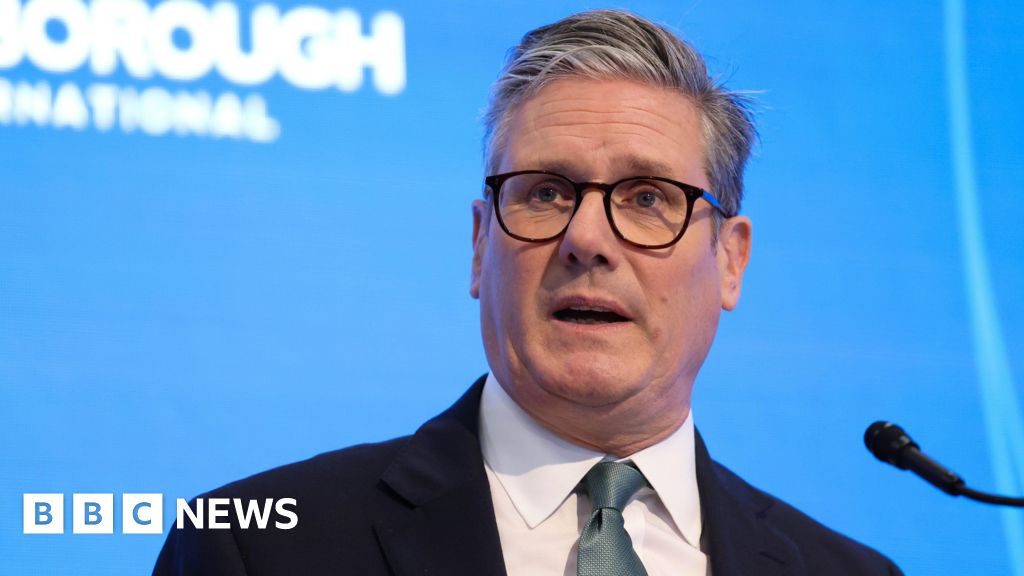- Secretary, Paul Seddon
- Part, Political reporter
-
Sir Keir Starmer has said that his proposed training operation in England will reduce the need for firms to hire from abroad.
In the speech, the Prime Minister said a skills shortage had made the UK reliant on “higher and higher” levels of immigration.
Labor is likely to face social and political pressure to reduce legal immigration from record highs after Brexit.
It does not have a general goal of migration, but seeks to reduce the need for overseas employment by linking training and migration policies.
Ministers want a new government agency, Skills England, to work with other consultants to close “skills gaps” in key sectors.
But the center is expected to take up to a year to set up, and Sir Keir has admitted his approach will not provide a “quick fix”.
Under the Labor plans, Skills England will work closely with official immigration advisers to develop training plans for departments that currently rely on immigrants to fill jobs.
Speaking at the Farnborough International Airshow in Hampshire, the Prime Minister blamed an “over-reliance” on immigration for a lack of training opportunities for young people.
He added that he did not want to criticize businesses that hire from overseas, but needed a “combined” approach to skills to deprive Brits of “the dignity of work”.
“We will not be satisfied with just pulling the easy lever of the skills to import. We are turning the page on that,” he added.
However, he refused to put a timetable on how quickly the policy will take to reduce migration, adding that he does not want to create an “independent day”.
Pay the bills
He also acknowledged that higher wages would also be needed to reduce the number of foreign workers, adding: “Part of that will be about wages, of course.”
He cited Labour’s plans for collective bargaining in the social care sector, one of the most reliant on overseas workers, as an example of what his new government plans to do. it gets to find the right “balance” of earnings.
However, this party faces a difficult background regarding the use of public sector funds.
Independent pay watchdogs have recommended a 5.5% rise for teachers and other NHS staff, more than the Treasury had expected, with recommendations for other sectors also in the coming weeks.
Before the election, Labor pledged to crack down on companies that refuse to comply with training plans to hire foreign workers, although detailed plans have not been published.
Total migration to the UK was 685,000 last year, down from a record 745,000 in 2022 but still higher than any year before Brexit.
Work visas issued in the last two years have increased significantly, mainly due to the increase in the number of healthcare workers under Boris Johnson.
But regardless of the impact of the Labor skills policy, experts predict the number of migrants for 2024 may decrease due to changes in salary requirements announced last year.
Scholarship money
Under Labour’s plans, Skills England is also to take new responsibility for deciding the future direction of skills training.
The group will decide which courses should benefit from the funds saved now to create apprenticeships, paid jobs that allow employers to gain work experience as well as training or education.
Labor wants to allow eligible firms to use up to 50% of this amount to support other types of training, in order to make companies respond to skills needs.
Labor argue that the existing apprenticeship levy, introduced by the Tories in 2016, has created a fragmented system and reduced income from employers.
But the Conservatives have warned that plans to redeploy money could reduce the number of apprenticeships on offer and reduce options for young people.
#skills #training #reduce #migration #Keir #Starmer #vows #BBC #News

